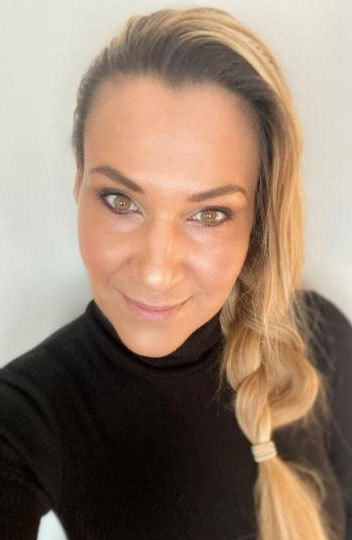
Contact
Centre for Brain and Cognitive Development
Department of Psychological Sciences
Birkbeck, University of London
Email: jsebok01@student.bbk.ac.uk
Supervisors
Dr. Natasha Kirkham (Birkbeck)
Prof. Daniel Richardson (UCL)
Research Interests
|
My research investigates the effect of interpersonal synchrony (i.e., movement matched in time between individuals, such as in dance or athletic settings) on the development of prosocial behaviour. Of particular interest, with my background as a specialist educational teacher for children with social interaction difficulties, is the impact of children trying to move with someone at the same time during their social interactions. The eventual aim is to develop an educational intervention to help children with poor social integration skills. Robust research has shown that correlated rhythmic movements increase a sense of affiliation between young children, and my recent MSc work shows that visually-induced synchrony can promote not just prosocial feelings but also an enhanced sense of similarity for a ‘virtual’ child. More specifically, my work set to study how different interpersonal synchrony experimental conditions (e.g., auditory, visual, virtual reality and real person experience) can induce and enhance children's social perception of others within a peer group. I will focus on two age groups of children, across the typical spectrum of social intelligence: 1) 3- to 5- years of age (the beginning of formal education), and 2) 9- to 11-years of age (the end of primary school, beginning of adolescence). Furthermore, I’m interested in what impact the various types of synchrony experimental conditions have on children’s social interaction and perception. How does joint movement experience presented by a real person compare to a virtually presented motion synchrony? Does social perception and action to motion synchrony differ between the beginning of children’s formal school years (3-5 years) and the end of their primary education (9-11)? Does virtual reality have a differential effect on younger children compared to older children? The outcome findings of the my project will provide vital information to the Early Years and Key Stage 1 Curriculum, which emphasises the development of social interaction and joined peer work in an educational setting for young children. Beyond this, it will provide relevant and vital information for educational psychologists who seek to support and understand the developmental mechanisms that have a positive impact on social interaction development. Furthermore, findings of this study could be disseminated to organisations that are interested in creating computer programs and educational games to help children to develop and learn to their better potentials. Finally, this research will benefit researchers interested in the impact of auditory, visual and virtual reality cue on social interaction as well as finding the link between brain regions that are involved with these processes. |
Education
PhD Psychology, Centre for Brain and Cognitive Development, Birkbeck (2020 – present)
MSc Cognitive Neuroscience and Neuropsychology (Distinction), Psychology Department. Birkbeck (2016-2018, Part-Time)
BSc Psychology (Distinction), Psychology Department, Birkbeck (2012 – 2016)
BA and MA Conductive Education and Pedagogy and Teacher Training, (Distinction with Scholarship reward), Budapest, Hungary, MPANNI, Peto Andras Specialist Conductive Education, Teacher Training and Pedagogy Institute (1997-2001, Full Time)
Research Posts
Research Assistant, Supervised by Dr Oliver Robinson, School of Human Sciences, University of Greenwich (2012-2013)
Research Assistant, Supervised by Dr Julia Horvath, Specialist Education and Pedagogy, MPANNI, Budapest (2000-2001)
Awards and Funding
ESRC +3 PhD studentship (2020 – 2023): Fully funded studentship to cover PhD fees (£4,327), living expenses (£17k per annum), and research expenses (£2,250).
Studentship at MPANNI, Budapest (1998-2001): Highest achieved undergraduate grade achievement term studentship award. Received the funds 14 times over the 4 years to cover the study fees and living expenses.
